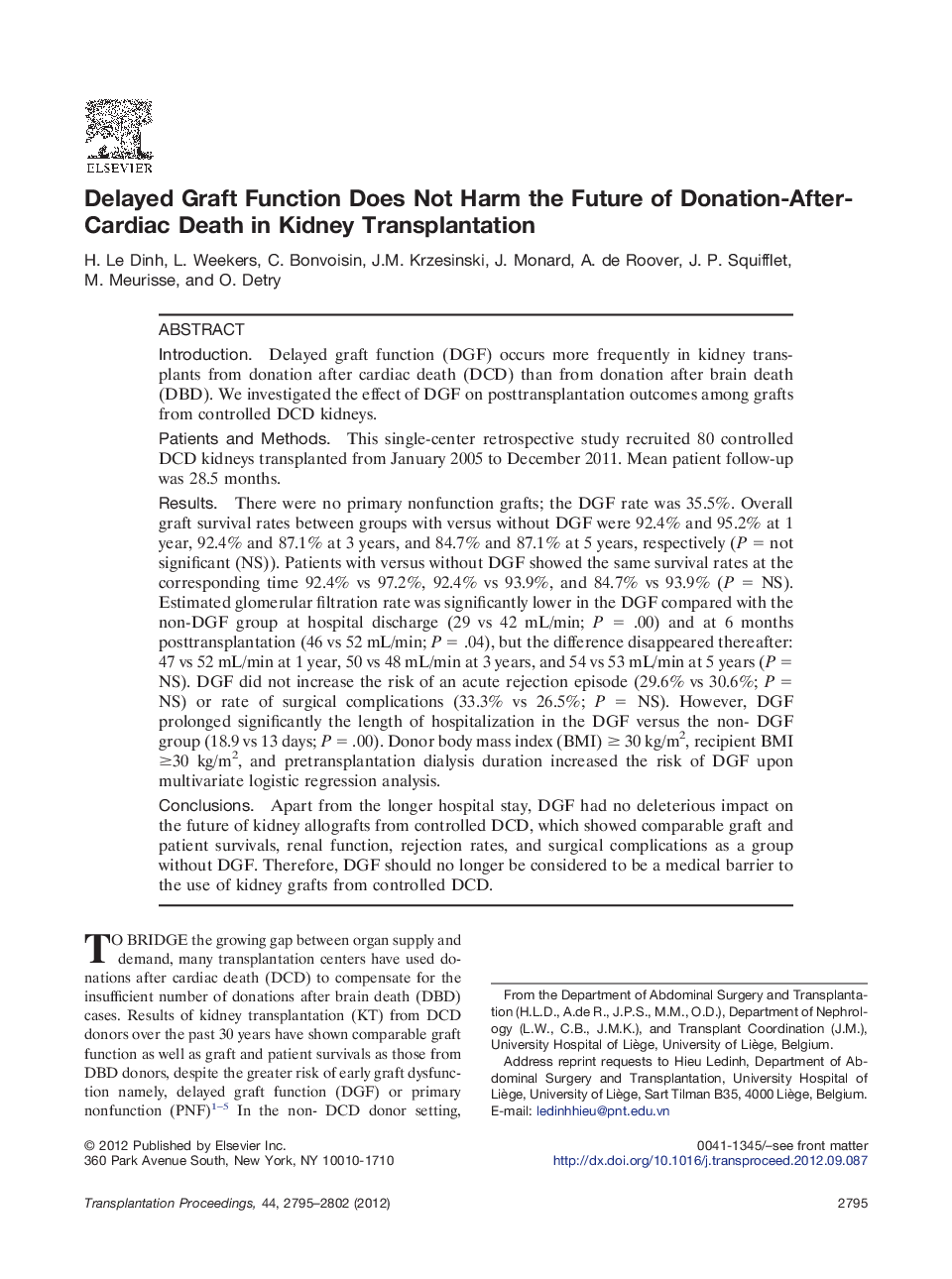| Article ID | Journal | Published Year | Pages | File Type |
|---|---|---|---|---|
| 4256329 | Transplantation Proceedings | 2012 | 8 Pages |
IntroductionDelayed graft function (DGF) occurs more frequently in kidney transplants from donation after cardiac death (DCD) than from donation after brain death (DBD). We investigated the effect of DGF on posttransplantation outcomes among grafts from controlled DCD kidneys.Patients and MethodsThis single-center retrospective study recruited 80 controlled DCD kidneys transplanted from January 2005 to December 2011. Mean patient follow-up was 28.5 months.ResultsThere were no primary nonfunction grafts; the DGF rate was 35.5%. Overall graft survival rates between groups with versus without DGF were 92.4% and 95.2% at 1 year, 92.4% and 87.1% at 3 years, and 84.7% and 87.1% at 5 years, respectively (P = not significant (NS)). Patients with versus without DGF showed the same survival rates at the corresponding time 92.4% vs 97.2%, 92.4% vs 93.9%, and 84.7% vs 93.9% (P = NS). Estimated glomerular filtration rate was significantly lower in the DGF compared with the non-DGF group at hospital discharge (29 vs 42 mL/min; P = .00) and at 6 months posttransplantation (46 vs 52 mL/min; P = .04), but the difference disappeared thereafter: 47 vs 52 mL/min at 1 year, 50 vs 48 mL/min at 3 years, and 54 vs 53 mL/min at 5 years (P = NS). DGF did not increase the risk of an acute rejection episode (29.6% vs 30.6%; P = NS) or rate of surgical complications (33.3% vs 26.5%; P = NS). However, DGF prolonged significantly the length of hospitalization in the DGF versus the non- DGF group (18.9 vs 13 days; P = .00). Donor body mass index (BMI) ≥ 30 kg/m2, recipient BMI ≥30 kg/m2, and pretransplantation dialysis duration increased the risk of DGF upon multivariate logistic regression analysis.ConclusionsApart from the longer hospital stay, DGF had no deleterious impact on the future of kidney allografts from controlled DCD, which showed comparable graft and patient survivals, renal function, rejection rates, and surgical complications as a group without DGF. Therefore, DGF should no longer be considered to be a medical barrier to the use of kidney grafts from controlled DCD.
